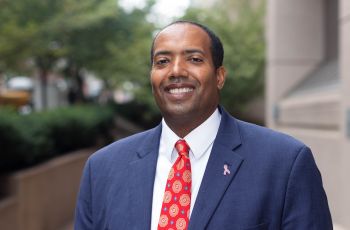Transplant Services
Make a New Kidney Transplant Appointment:
Call 202-715-4225
Make a New Liver
& Pancreas Appointment:
Call 202-715-5168

Services We Offer
- Kidney Transplant Services
-
Our providers perform kidney transplants using kidneys from both living and deceased donors.
This process may include:- Pre-transplant care and listing for transplants
- Transplant surgery utilizing advanced techniques and equipment
- Post-transplant care
- Advanced transplant protocols
- Transplant biopsies
- Transplant related laboratory tests
- Liver & Pancreas Institute For Quality Services
-
Disease & Conditions:
- Pancreas Cancer
- Liver Cancer
- Diseases of the Gallbladder and Bile Ducts
- Benign and Malignant Tumors of the Pancreas, Liver, Bile Ducts, Duodenum and Gallbladder
- Liver Masses and Lesions
- Pancreas Cystic Lesions
- Bile Duct and Pancreas Injuries
- Pancreatic Cancer
- Genetic Testing in High Risk Individuals (Ruth Paul Cancer Genetics and Prevention Service)
Treatments:
- Primary and Second Opinion for Advanced Pancreatic Cancer
- Innovative and Complex Surgery for Pancreas Cancer
- Minimally Invasive Pancreas Resection/Whipple for Benign and Malignant Conditions
- Minimally Invasive Liver Resection for Benign and Malignant Conditions
- Combined Pancreas Resection with Vascular Reconstruction
- Interventional Ablation Techniques
- Targeted Precision Drug Therapies
- Advanced Stereotactic Body Radiation Treatment
- Multidisciplinary Oncologic Pre-Treatment Planning and Clinical Trials
- Advanced Nurse Practitioners and Program Manager for Personalized Care
- Specialized Perioperative Care
D.C. Kidney Transplant Program
About 26 million Americans have chronic kidney disease, according to the National Kidney Foundation (NKF). For many, a kidney transplant can be the most effective treatment option. Transplant Surgery at The GW Medical Faculty Associates is a comprehensive kidney transplant program along with the specialty services required to care for transplant surgery patients in the District of Columbia and the surrounding areas. From initial evaluations to surgical procedures and the necessary after care, transplant patients undergo the entire process at The GW Medical Faculty Associates and the George Washington University Hospital through The GW Transplant Institute.
- Transplant Medicine
-
The Division of Kidney Disease and Hypertension at The GW Medical Faculty Associates is dedicated to the comprehensive and personalized care of kidney and kidney-pancreas transplant patients.
Currently, approximately 400,000 patients with kidney disease are on dialysis. While dialysis does offer life sustaining treatments for those without sufficient kidney function, kidney transplantation is the optimal treatment for this patient population. Healthy kidneys for transplantation can be from a living or deceased donor.
Immunosuppressive Medication
Immunosuppressive medications are required to prevent rejection of the transplanted kidney. The transplant nephrologist is specially trained to identify the appropriate candidate to undergo transplantation, choose and optimize the immunosuppressive medications, and manage specific transplant related complications, such as opportunistic infections, malignancy, and heart disease.
A Multidisciplinary Team
The clinic works collaboratively with Transplant Surgery and other medical specialties including Cardiology, Hematology-Oncology, Gastroenterology and Infectious Disease.
The clinic offers the following services:
Evaluation for kidney and pancreas transplant recipient Living donor work up
- Optimizing immunosuppression
- Treatment of rejection
- Management of BK virus and other infections
- Screening for post-transplant malignancy
- Transplant kidney biopsy
The clinic is led by Muralidharan Jagadeesan, MD, FACP,FASN.
- Transplant Surgery
-
We offer a variety of surgical procedures featuring advanced technology and equipment. This includes:
- Pancreas transplantation: Offered for diabetics with end stage kidney disease.
- Deceased donor transplant: A patient receives a transplant from a deceased donor.
- Living donor transplant: A family member or a friend agrees to donate a healthy kidney to someone with end-stage renal disease. This is a scheduled surgery.
- Laparoscopic donor surgery: A surgeon performs a transplant through small incisions with a shortened hospital stay and recovery time.
- ABO incompatible kidney transplant: If a recipient’s blood contains antibodies that react to a potential donor's blood type, the antibody reaction will immediately reject the transplant. Until recently, the only option was to identify recipient-donor transplant pairs with compatible blood types. ABO incompatible kidney transplant now allows transplants between some individuals with different blood types.
- Desensitization for transplant: Sensitized kidney transplant patients have high antibody levels that react to foreign tissue. This can prevent a person from having a donor kidney match. Desensitization is a process in which antibodies are removed from the blood through plasma exchange. After each treatment, clinicians give a drug to the patient to help prevent antibodies from coming back. Typically, two to four treatments are required prior to transplant.
- Auto transplant: A surgeon removes a kidney and transplants it in a different location within that person to improve renal function.
- Living Donor Paired Kidney Exchange: A living donor donates a kidney to another recipient who also has an incompatible or poorly compatible donor. This increases the amount of individuals receiving a transplant. An altruistic donor may also start a kidney transplant exchange.
Liver & Pancreas Institute for Quality
The GW Liver and Pancreas Institute for Quality (LPIQ) offers innovative and state of the art treatments for patients with Pancreas, Liver, Bile Duct, Duodenum and Gallbladder diseases. The executive director and colleagues offer a combined experience of over 40 years of experience in the field of hepatobiliary surgery and treatments. In these conditions, experience and team matters to patient outcomes. We offer some of the best outcomes of any center in the country. With well over 1000 combined pancreas resections and 700 liver resections, the center offers nationally superior outcomes in a specialized environment.
Our team not only offers surgical approaches to the most complex conditions but also combines expertise in Interventional ablative techniques, Vascular reconstruction, Targeted Precision Drug Therapies, Advanced Stereotactic Body Radiation Treatment, Multidisciplinary Oncologic Pre-Treatment Planning, Clinical Trials and Perioperative Care. In addition, our Advanced Nurse Practitioners and Program Manager provide personalized care with informative and open communication between patients and referring physician caregivers.
Contact Us
Phone: 202-715-5168
Fax Number: 202-715-4663
Latest News
In late April 2022, the George Washington University (GW) Transplant Institute’s new Liver Transplant Program completed its first liver transplant, led by surgeons Stephen Gray, MD, a provider with Transplant Services at the GW Medical Faculty Associates (MFA) and associate professor of surgery…


